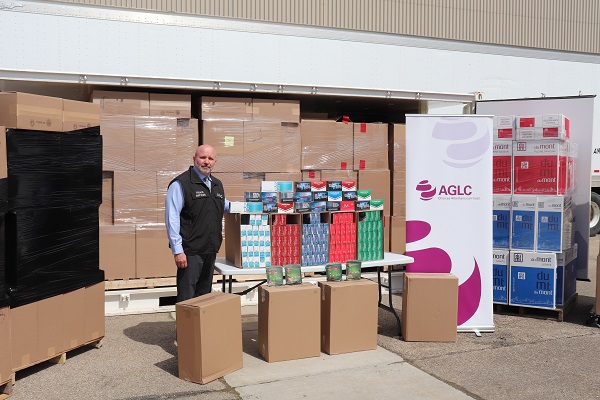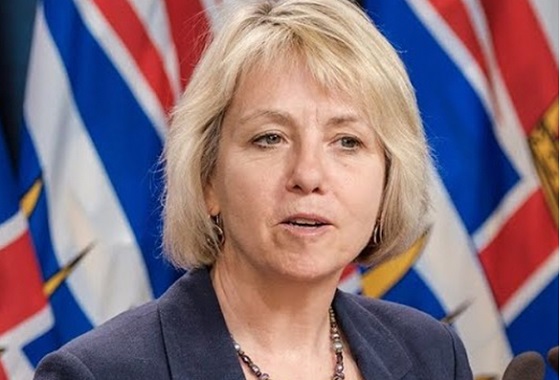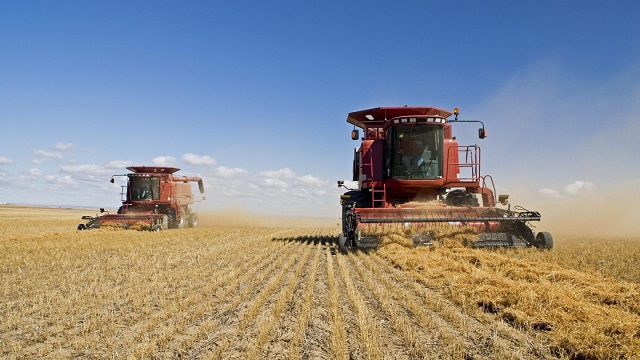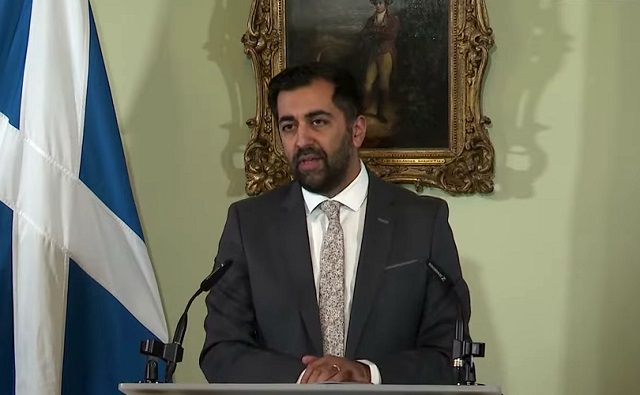Uncategorized
Search crews look for the dead and the living in Florida

MEXICO BEACH, Fla. — Florida authorities fielded a barrage of calls about people missing in Hurricane Michael’s aftermath as search-and-rescue teams Friday made their way through flattened
The number of dead was expected to rise, but authorities scrapped plans to set up a temporary morgue, indicating they had yet to see signs of mass casualties from the most powerful hurricane to hit the continental U.S. in nearly 50 years.
Residents, meanwhile, began to come to grips with the destruction and face up to the uncertainty that lies ahead.
“I didn’t recognize nothing. Everything’s gone. I didn’t even know our road was our road,” said 25-year-old Tiffany Marie Plushnik, an evacuee who returned to find her home in Sandy Creek too damaged to live in.
When she went back to the hotel where she took shelter from the storm, she found out she could no longer stay there either because of
“We’ve got to figure something out. We’re starting from scratch, all of us,” Plushnik said.
Across the ravaged region, officials set up distribution
President Trump announced plans to visit Florida and hard-hit Georgia early next but didn’t say what day he would arrive.
“We are with you!” he tweeted.
Search teams continued to pick their way through the ruins of Mexico Beach, the ground-zero town of about 1,000 people that was nearly wiped off the map when Michael blew ashore there on Wednesday with devastating 155 mph (249 kph) winds. Blocks and blacks of homes were demolished.
State officials said that by one count, 285 people in Mexico Beach defied mandatory evacuation orders and stayed behind. Whether any of them got out at some point was unclear.
Emergency officials said they have received thousands of calls asking about missing people. But with cellphone service out across vast swaths of the Florida Panhandle, officials said it is possible that some of those unaccounted for are safe and just haven’t been able to contact friends or family to let them know.
Gov. Rick Scott said state officials still “do not know enough” about the fate of those who stayed behind in the region.
“We are not completely done. We are still getting down there,” the governor added.
Emergency officials said they had done an initial “hasty search” of 80
Shell-shocked survivors who barely escaped with their lives told of terrifying winds, surging floodwaters and homes cracking like eggs.
Federal Emergency Management Agency chief Brock Long said he expects to see the death toll rise.
“We still haven’t gotten into the hardest-hit areas,” he said, adding with frustration: “Very few people live to tell what it’s like to experience storm surge, and unfortunately in this country we seem to not learn the lesson.”
Long expressed worry that people have suffered “hurricane amnesia.”
“When state and local officials tell you to get out, dang it, do it. Get out,” he said.
___
Contributors in Florida include Associated Press writers Jay Reeves in Panama City, Brendan Farrington in St. Marks, Gary Fineout in Tallahassee, Tamara Lush in St. Petersburg, Terry Spencer in Fort Lauderdale, and Jennifer Kay and Freida Frisaro in Miami. Others include Jonathan Drew in Raleigh, North Carolina, Darlene Superville in Washington, and Seth Borenstein in Kensington, Maryland.
___
For the latest on Hurricane Michael, visit https://www.apnews.com/tag/Hurricanes
Russ Bynum And Brendan Farrington, The Associated Press
Uncategorized
RCMP recruitment failure has Alberta advocacy group calling for Provincial Police Service

News release from Free Alberta Strategy (A Strong And Sovereign Alberta Within Canada)
“Make no mistake, we are paying for these services that we aren’t receiving. Alberta’s taxpayers are paying tens of millions of dollars for nearly 400 vacant RCMP officer positions – for boots that are not on the ground.”
A recent report from the Royal Canadian Mounted Police (RCMP)’s independent Management Advisory Board had findings that are nothing short of alarming:
“Federal policing has now arrived at a critical juncture of its sustainability, which present risks for the national security and safety of Canada, its people, and its interests,” says the report.
After over a year of diligent study, the Board has been tirelessly firing off flares, signalling to all who will listen: the very foundation of our national public safety apparatus may be at risk of faltering.
This is doubly problematic because, as you well know, the RCMP is also responsible for boots-on-the-ground policing in large parts of the country, including many rural and remote areas – including in Alberta.
Rural crime has been a longstanding issue in Alberta, and social disorder continues to make headlines nightly.
Alberta Minister of Public Safety, Mike Ellis, took to social media platform X (formerly known as Twitter) to express his opinion:
“The independent report finds the RCMP has struggled in recent years to recruit and retain regular members, a problem that’s particularly acute in federal policing. This is not about the hard-working men and women on the frontline: they are doing everything they can. The reality is the RCMP do not have enough officers to police communities in Canada effectively.”
Ellis has been ahead of this story for months now.
In March, Ellis stated that:
“… on average, Alberta has an RCMP officer vacancy rate of 20 per cent. This means that Alberta is only being served by 1,522 of the 1,911 RCMP officers that the federal government has authorized for Alberta.”
“Make no mistake, we are paying for these services that we aren’t receiving. Alberta’s taxpayers are paying tens of millions of dollars for nearly 400 vacant RCMP officer positions – for boots that are not on the ground.”
The consequences of this capacity crisis are far-reaching.
Not only does it jeopardize the safety of Albertans, but it also undermines the credibility of Canada’s federal police force on the international stage.
With limited resources and personnel, the RCMP’s ability to address pressing national and global security concerns is severely compromised.
The Management Advisory Board, created in 2019 by the federal government to provide external advice to the RCMP commissioner, set up a task force in the fall of 2022 to study the federal policing program.
Overall, the report says budget and personnel shortfalls have left the RCMP “operationally limited,” restricting the number of cases it can take on annually.
Here are some more highlights from the report:
“Canada and its people have already begun to see the repercussions of the federal policing program being stretched thin.”
“Federal policing’s overall eroding capacity may have implications for the credibility of Canada’s federal police force and its investigations on the international stage.”
“Ultimately, this may influence Canada’s overall approach and standing in international politics, including its ability to advance global priorities.”
Clearly, we cannot afford to wait any longer.
Municipalities can ease the burden on our national security services by establishing municipal policing.
Several cities in Alberta already have their own police authorities, and the provincial government is providing funding for others interested in exploring this option.
Grande Prairie is already in the process of establishing their own municipal police service.
No word on how many other municipalities have taken the government up on their offer.
Unfortunately, President of Alberta Municipalities Tyler Gandam (also Mayor of Wetaskiwin) is featured prominently on the National Police Federation’s “Keep Alberta RCMP” website.
Interestingly, the Keep Alberta RCMP website doesn’t mention the fact that the advisory board even exists.
It doesn’t mention the report.
The notion that our federal policing infrastructure teeters on the brink of instability while Gandam appears to be asleep at the wheel, is deeply disconcerting.
The safety and security of Albertans must remain our top priority.
We cannot afford to wait any longer.
The time has come for the province to take swift and decisive measures to bolster policing capabilities in Alberta.
It’s time for Alberta to seriously consider the establishment of an Alberta Provincial Police Service.
It has been one of the core tenets of the Free Alberta Strategy.
If you agree, please reach out to your municipality and ask them to take steps to protect your community.
Together, we can keep Alberta safe.
Regards,
The Free Alberta Strategy Team
P.S. We’re hoping you’ll consider contributing to our cause. Your generous donation helps us make a positive impact in our community. No need to worry about any hold-ups or threats here. We’re just passionate about making a difference, and your support goes a long way in helping us achieve our goals.
Uncategorized
Making Alberta a geothermal energy leader

Eavor announces it’s the #1 geothermal energy startup company in the world – January 2024
Alberta is creating Canada’s first geothermal test site to advance drilling innovation, reduce emissions and create jobs.
Geothermal energy uses naturally occurring heat within the earth to heat water and buildings and generate power, with few emissions or environmental impacts. Alberta has vast pockets of heat below ground, making the province Canada’s geothermal leader, but testing and developing new technologies can be a barrier for many companies. Unlike the United States, Japan and other countries, Canada does not currently have an open-access test site to help spur innovation.
Alberta is taking the first steps to create a new Alberta Drilling Accelerator. This groundbreaking facility would be the first of its kind in Canada, establishing Alberta as a global hub for geothermal technology. This will drive new innovations in geothermal and other clean energy projects that can reduce emissions and power communities around the world.
To kick-start the project, the Alberta government is investing $750,000 to conduct a feasibility study led by Calgary-based Eavor Technologies and other stakeholders. The study is the first step in assessing the proposed facility. It will include identifying a site, business planning, research on the governance model, an economic impact analysis and stakeholder engagement that will lay the groundwork for the initial planning stages of the project.
“Alberta has been a global energy leader for more than a century, renowned for our skilled workforce, innovation and one of the largest oil and gas reserves on the planet. The proposed Alberta Drilling Accelerator presents enormous potential to help our province lead the next wave of energy projects here at home and around the world that reduce emissions, create jobs and enhance energy security.”
The Alberta Drilling Accelerator would help companies test out and develop new geothermal drilling techniques or technologies to reduce emissions and drive growth across the clean energy sector. It would be an open-access, technology-agnostic drilling test facility capable of drilling in challenging environments, including deep depths, high temperatures and different rock types.
The accelerator also would help speed up the development of carbon capture, utilization and storage; helium; critical minerals; and other clean technologies and commodities that rely on Alberta’s drilling sector. All of this helps attract investment and bring new technologies to scale in Canada.
“With cumulative geothermal investment poised to reach $1 trillion by 2050, a geothermal arms race is very much underway to commercialize novel drilling techniques that accelerate geothermal development – exhibited by testing facilities in the United States, China and Iceland. As Canada’s first geothermal test bed, the Alberta Drilling Accelerator will help bring geothermal technologies to scale, supporting companies like Eavor. We commend the Government of Alberta for this bold initiative.”
“We are proud to witness Eavor, a CDL-Rockies alumni company, create new opportunities for innovators like themselves to advance the adoption of energy transition technologies like geothermal. The Alberta Drilling Accelerator will further solidify Alberta’s position as a leader in the global sustainable energy landscape.”
If the feasibility study shows the facility is economically and environmentally viable, and if the project is approved by the Alberta government, the facility will start taking shape at the selected site and drilling could start as early as 2025.
“Canada is home to the most advanced drilling technology in the world. Not only do our members support the responsible development of oil and gas, but we are integral in the extraction of new energy resources like geothermal and critical minerals. Our workers are at the epicentre of Canada’s energy transformation. Our people, technology and processes are leading the way towards a more diverse energy future. The Alberta Drilling Accelerator is a government-enabled policy approach to expand Alberta’s drilling capacity and reach its full potential as the world’s most diverse and technologically advanced producer and exporter of sustainable energy and critical minerals.”
“The Alberta Drilling Accelerator is a testament to Alberta’s innovative and entrepreneurial spirit. Leveraging our oil and gas sector expertise, Alberta is poised to become the global leader in developing new geothermal technologies that will play an integral role in reducing emissions while supporting job creation.”
Quick facts
- The Canadian Association of Energy Contractors estimates that one active drilling rig, whether drilling for natural gas or geothermal, creates approximately 220 direct and indirect jobs and
$1 million in tax revenue. - In 2019, Eavor received $2 million in provincial funding through Emissions Reduction Alberta and Alberta Innovates for the world’s first closed-loop geothermal system.
Related information
-

 Alberta1 day ago
Alberta1 day agoPharmacist-led clinics improve access to health care: Lessons from Alberta
-

 Alberta1 day ago
Alberta1 day ago30 million contraband cigarettes valued at $25 million dollars seized in Alberta
-

 COVID-1912 hours ago
COVID-1912 hours agoCOVID Lab Leak: Over four later, EcoHealth Alliance funding is finally suspended
-

 COVID-191 day ago
COVID-191 day agoHealthcare workers obtain partial win against Bonnie Henry in BC Supreme Court
-

 COVID-191 day ago
COVID-191 day agoElon Musk-backed doctor critical of COVID response vows appeal after court sides with medical board
-

 COVID-192 days ago
COVID-192 days agoJapan’s most senior cancer doctor: COVID shots are ‘essentially murder’
-

 Health1 day ago
Health1 day agoSouth Korean president declares low birth rate a ‘national emergency,’ plans new ministry to address it
-

 Frontier Centre for Public Policy2 days ago
Frontier Centre for Public Policy2 days agoThe Toppling of the woke authoritarians







